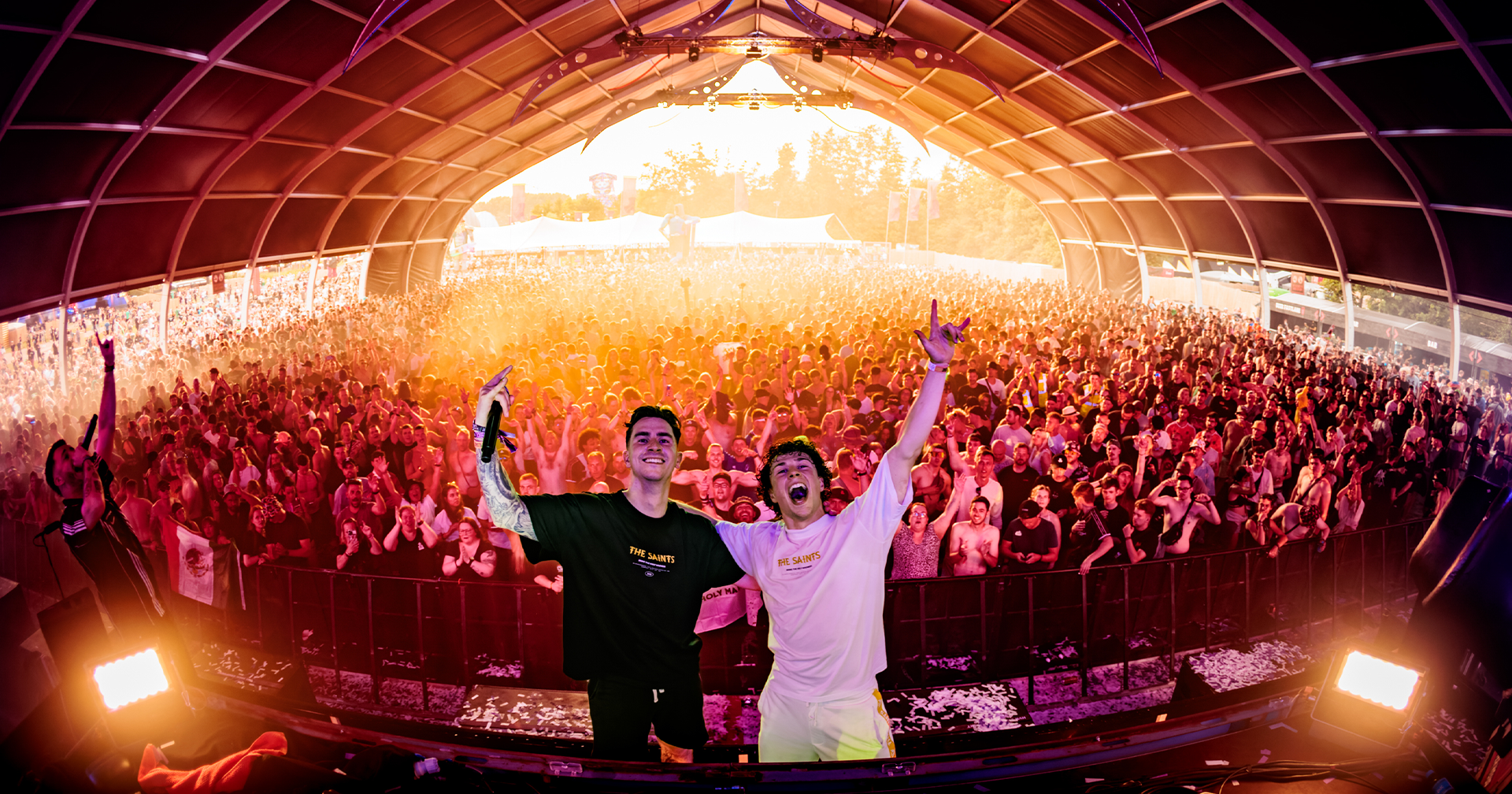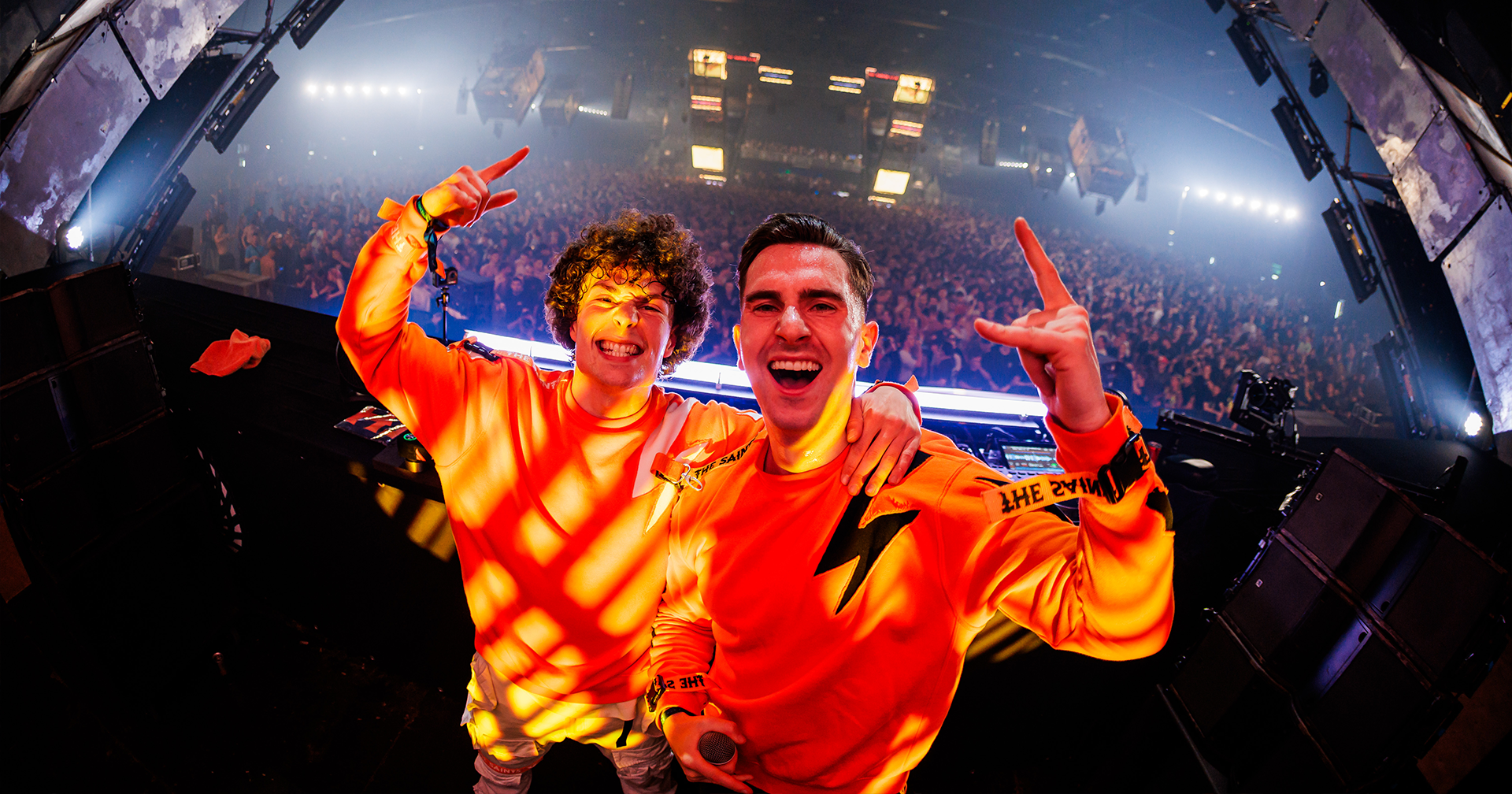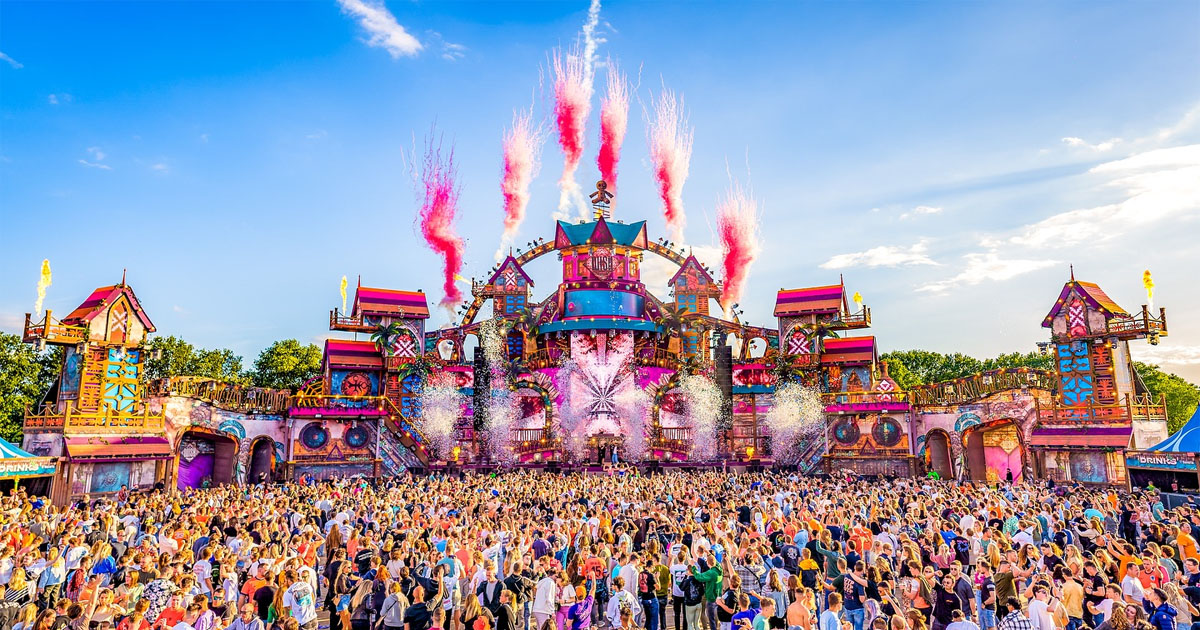The list of people with mental health problems in the entertainment industry, especially musically, seems endless. But it’s not only linked to the world’s famous superstars, like Linkin Park’s front man Chester Bennington. Our beloved harder styles scene faces the same exhausting problems, although it doesn’t seem to be like this… At this year’s Hard Dance Event a panel was devoted to this serious topic and some of the most famous hardstyle artists talked about it: the harder state of mind.
We belong to a scene where it’s all the time and everytime about party. A festival seems to be a never stopping, energetic and always happy place. A safe space where issues or difficulties not exist. Visitors, event organizers and artists corroborate this idea of a carefree paradise. Although this is not always the case for every one and even worse, the industry may be the occasion for serious mental health problems for some of them.
Since Avicii died last year, the topic gained attention in the electronic dance music scene in general. Armin van Buuren recently talked about it on Dutch national television and also some harder styles artists start to open up. Headhunterz, Atmozfears, MC Villain, Rudy Peters (artist manager) and Esther van der Poel (mental coach for creative entrepreneurs) were invited to talk at the panel Harder State Of Mind at this year’s Hard Dance Event. During the discussion, the listeners got a good impression of how mental health problems occur in the music scene.
Headhunterz: “It’s the voice in your head that always keeps you going”
The most named trigger was pressure and stress. Pressure to please fans and pressure to please promoters who expect DJs to party with visitors although they’re only booked to perform. Manager or even sometimes close friends who want to push artists forward and also self pressure to satisfy the desire of fame, career rise and own expectations.
Stress to release as much music as possible, stress to be innovative and always high quality, stress to keep up with the speed of the scene. Headhunterz describes this as “the voice in your head that always keeps you going”. Considering some artist might also stand under financial pressure, it’s easy to understand that it’s difficult to slow down, although the busy life might be too much. The discussion participants agree that it’s “very hard to say no” to great bookings or performances which bring a lot of money.
It’s also hard to say no to be as much involved in the scene as possible. Due to new technologies and social media, a producer is not only a musician anymore, but an artist representing his own brand 24/7. Social networks give DJs the great possibility to spread their music and brand, but also have downsides. If you’re not as active as followers may want it, they may think you’re out of the picture. Being present, showing your life and what you’re working on is now part of the game.
Coone recently shared his thoughts on Instagram and told about the struggles to be the perfect image: “With the high expectations set on you and the expectations social media has come to portray, you almost have to live in a bubble of perfectionism. As an artist you need to be on top of your game every single moment. Add a busy personal life, and it almost feels as though it all becomes too much.” Seeing how much content other artists publish can give the feeling of having to be always present on the internet as well, what creates even more pressure. Atmozfears revealed in the discussion round he unfollowed some of his colleagues exactly because of this reason.
Thousands of fans vs loneliness & isolation
Furthermore, busy artists often have a relentless touring schedule. Night performances, long travel hours, time-zone changes and jetlag lead to irregular sleep. Headhunterz states that this is not only the case on weekends but most days of his current life: “There are not many ‘regular’ days”. This DJ life consists of irregular days, therefor this is the regular life of an artists without proper occasions to get a balance. But not only the life is unstable; a chronicle lack of sleep leads to a chemical imbalance in the body, which is a solid foundation to evolve mental health problems.
On top of that comes that with this lifestyle, DJs often don’t have a real home. “Playing in front of thousands of people and then coming alone in an anonymous hotel room does something with you”, says mental coach Esther van der Poel. Although thousands of people admire them, loneliness and isolation are big problems for many artists.
“Archiving your dream job is not the key to happiness”
The ones in the discussion didn’t go into depth about their feelings or didn’t name details about their mental health problems, but it became clear that being a famous producer doesn’t make you susceptible for sadness and diseases like depression or burn out. Headhunterz gave a perception of how being a well-known artist may give you an even worse feeling: “You feel guilty, because you have everything people wish for, but you still feel like this and don’t enjoy it.” Furthermore he makes clear: “Archiving your dream job is not the key to happiness.”
Since DJs are working in nightclubs or at festivals, an environment where people come to escape from their daily life, they’re often surrounded by alcohol and other drugs. But in contrast to most of the visitors this is their daily life, so misuse of those substances may cause serious health and addiction problems. Also the mentioned loneliness and isolation may lead artists turning to drugs to feel this “short term happiness.” When all these things come together, things can quickly spiral.
Caine, lately even better known as Greazy Pussy Fuckerz, published an unusual serious post on Facebook about a dark, depressed phase of his life. Although his depression got triggered by personal tragedies, it’s linked to his life as a performing artist. After his mother died, he wanted to forget everything by drinking and taking drugs: “For about 3 days straight i was completely away with it, popping pills like they were skittles, I didn’t go home and just continued the session to the state of what I’m pretty sure was a near fatal overdose.”
At this time, Caine had no structured day, a safety net to keep him in the right track: “I was struggling to pay the rent, being a full time DJ you rely on playing gigs as your main income but for about a year I pretty much produced nothing because i had 0 motivation or inspiration and other troubles were going on with that to add to the big sad and make me feel even worse about things. I just felt weak and completely worthless.” Luckily, he took the edge off, had a wake up call last minute and found a way to overcome this period of his life.
Finding solutions approaches: “There’s no universal solution for mental health problems”
All this is not news and something artists probably have always been fighting against. Euphoric hardstyle producer Cyber announced his career end as a performing artist around one year ago and summarized the struggles quite well in an Instagram post: “I’ve spent the last few years traveling the world, performing, partying, making music. But I got lost on its way. I forgot about what matters to me. I fully acknowledge and I am eternally grateful that I was living a “dream life.” However, at the same time – the lifestyle is fraught with mental health pitfalls. Extreme sleep deprivation, difficulty maintaining relationships, increased social media pressures, over-saturation of the market, long periods of isolation, and constant career instability.”
Pulling the plug and quitting the career is the last possibility when it’s already too late. But this can not be the solution for structural problems like the DJ lifestyle cause. How difficult it is to address the problems and find solution approaches became clear at the HDE panel as well. Mental coach Esther van der Poel made clear that there’s no universal solution for mental health problems and everyone has to find out what is helping.
Artist manager Rudy Peters stated how important regular sleep, sportive activity and healthy food is. Atmozfears explained, he was working on his life balance and therefor took a step back in his career. This is something all participants agreed on: finding a way to set boundaries in their professional lives and sticking to it, is necessary when trying to get back the balance in life. Making clear to booking agents and managers what is doable and when it’s too much. Learning to say no to situations that will cause stress. Possibly lowering expectations. Sobriety as the normal state of being.
When Headhunterz got asked if maybe someone would help, who would guide him through his day and sets the boundaries for him, he even agreed that this is something that may help. But most importantly and also essential is what sounds easy but in reality isn’t: talking about how you really feel. Not showing the real emotions lies in the nature of depression, but not talking about it often makes it even worse.
“I feel shit!” – Opening up is often the first step for improvement
The hardstyle artists mention shame as a reason why talking frankly is so difficult. In a scene where it’s only about party, where are barely emotional lyrics but only happiness, it’s understandable how hard it is to open up and reveal personal emotions. Because nobody speaks about sadness, the others think they’re alone with their feelings and that’s how shame and even more depression evolve. But luckily this seems to slowly change. In an interview with the DJ Mag, Coone says: “Before, when we met us at performances, everything was nice, everything awesome, everyone happy, everyone satisfied. But of course this was never the truth. Today we can also say: I feel shit. I miss my family. Right now somehow everything is too much.”
Discussion rounds, honest social media postings and articles raise awareness and hopefully will make it easier to deal with mental health problems, no matter if it’s about a famous artist, a fan or anyone else. Even more meaningful is talking in person: to friends, manager, family, a professional. Coone found motivating words for the end of his emotional Instagram post: “You either pull yourself together, reach your goals, be the best person you can or you’ll forever be drowning in a struggle you’ll never win.” Also Caine advises to always count the blessings in life: “There is plenty of happiness to go around.”
If you are struggling with mental health and if you ever feel you need someone to talk with, reach out to a person you trust and talk to skilled, trained counselor at a crisis center in your area at any time (National Suicide Prevention Lifeline). As you’ve just read now, you are not alone and the minute you start talking about it, it gets easier.
Thumbnail from Instagram page Wanyama-photo






